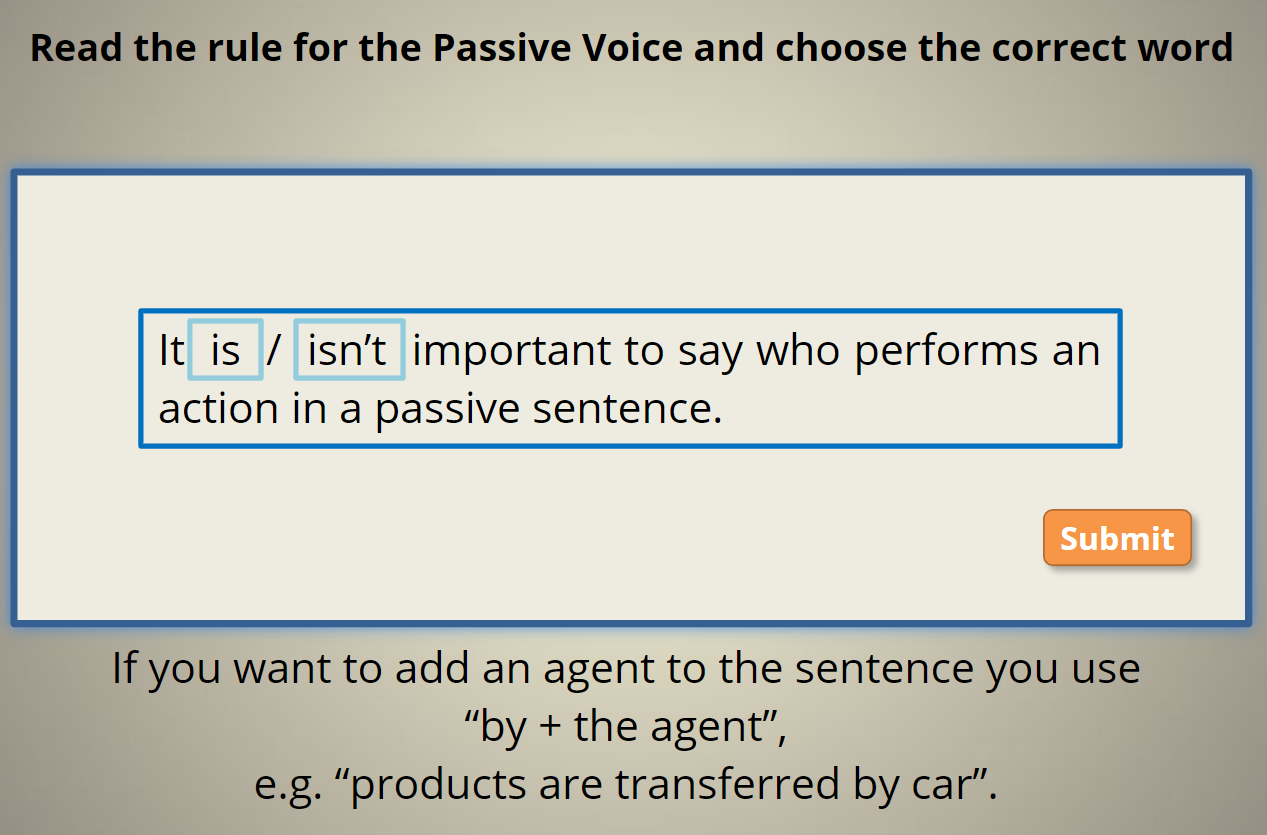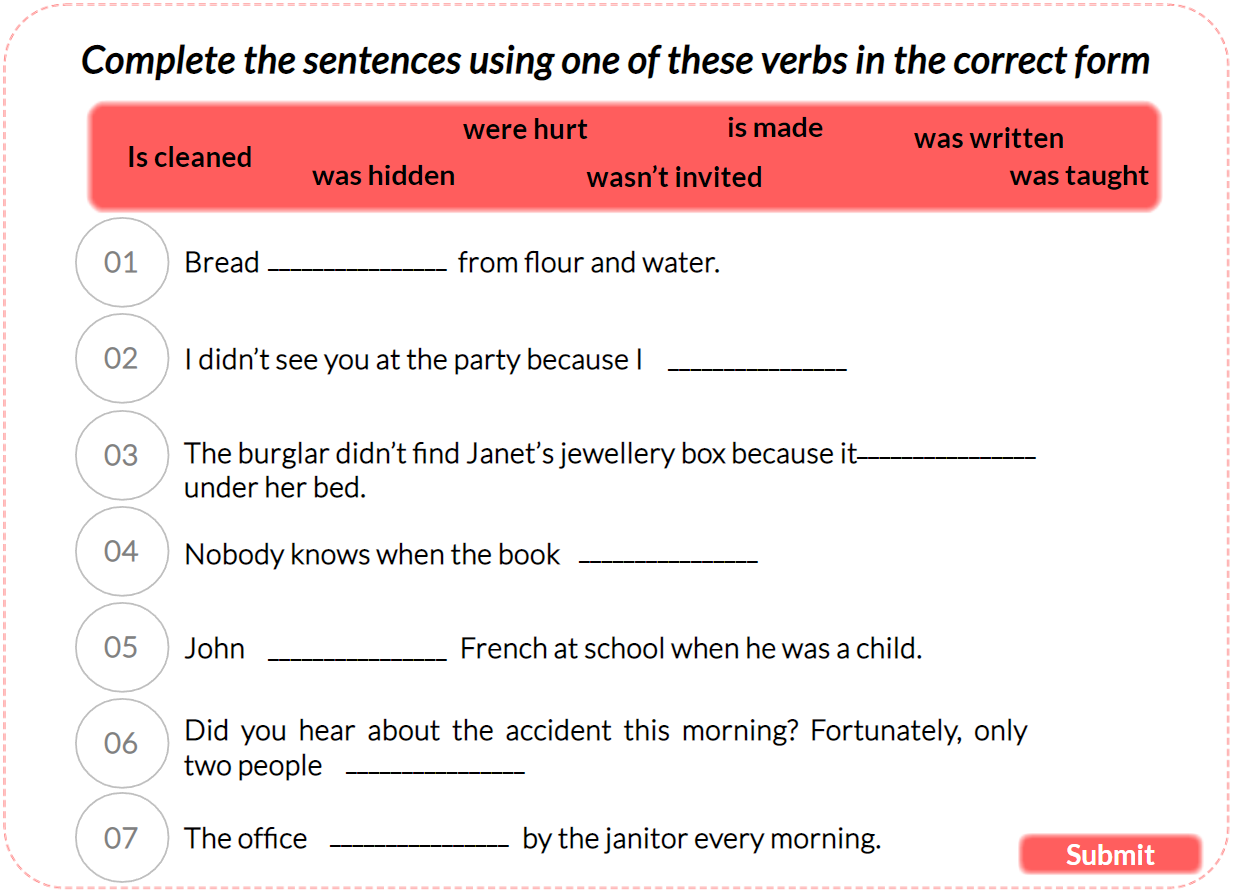Lesson 1: Grammar
Lesson 1: Grammar

Grammar
Watch the video below.
Active and Passive Structures
Compare active and passive structures below.
| Active: I mailed the letter on Monday. | Passive: The letter was mailed on Monday. |
| In the active sentence the subject (I) causes an action (mailed the letter). | In the passive sentence, the cause of the action is unknown or unimportant - we only say what happens to the subject (the letter). The passive is formed with the verb be (is/are/was/were etc.) + past participle (e.g. mailed)
If we want to say who or what causes the action in a passive sentence, we use by: The letter was mailed by her father. He was hit by a motorbike. If the verb in a passive sentence has two objects, we can begin with the second object or use to: |
| Active: The company gave me a new phone. | Passive: I was given a new phone. / A new phone was given to me. We sometimes use get instead of be: He nearly got run over by a car. My phone got stolen yesterday. Get is used mainly in informal or spoken English to talk about things that happen or change unexpectedly. We cannot say, for example, she gets liked by everyone. Dialogue A: His car was sold yesterday. B: Really? Who bought it? A: I don’t know, but he got paid a lot of money for it. |
Proceed to Next Page
Lesson 1: Grammar
Grammar Table
Study the grammar table below.
| ACTIVE VOICE | PASSIVE VOICE | |
| Affirmative | Somebody pours gum base into a mixer. | Gum base is poured into a mixer. |
| Negative | They don’t use natural ingredients for bubble gum. | Natural ingredients aren’t used for bubble gum. |
| Question | How do they produce bubble gum? | How is bubble gum produced? |
| The Active Form | Subject + Verb + Object Somebody pours gum base … | |
| The Passive Form | [Object] of an active sentence + IS/ARE/AM + verb in 3rd form (past participle) + the rest of the sentence | |
Proceed to Next Page
Lesson 1: Grammar: Practice

